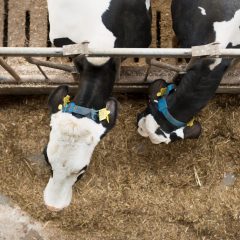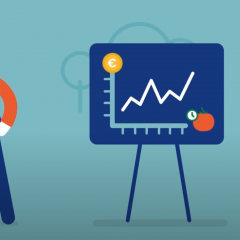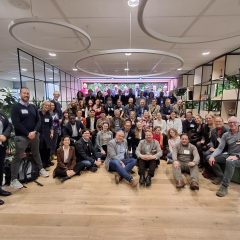Research project Data4Food2030
General introduction
The digital transformation of food systems has entered a twilight zone: data-driven innovations have proven to be promising, but it is still unclear how to upscale adoption and broaden acceptance. The Data4Food2030 project aims to improve the data economy for food systems (DE4FS) by expanding its definition, mapping its development, performance and impact to create new insights and opportunities. This contributes to a more competitive and sustainable food system in the EU and supports implementation and adaptation of relevant policies such as a Digital Single Market, Green Deal and the Common Agricultural Policy.
Research approach
Following an iterative and multi-actor approach, Data4Food2030 aims to 1) enlarge the knowledge base and insight into the DE4FS, 2) develop a system that monitors and evaluates the development, performance and impact of the DE4FS on relevant EU policies 3) identify drivers and barriers and turn these into opportunities, recommendations and solutions, 4) test solutions and evaluate recommendations in case studies and through stakeholder dialogues and 5) provide future scenarios and a roadmap and sustain the monitoring system to support policy development and accelerate the desired future state of the DE4FS. Stakeholder engagement, including nine case studies, is an essential part of the project.
Relevance/Valorization
Data4Food2030 is expected to be a flywheel that drives the Data Economy for Food Systems (DE4FS). Data4Food2030 puts a superstructure on top of the knowledge from the work packages: there will be a real conceptual and evaluative framework, along with an instrument that monitors progress towards a sustainable DE4FS. That tool is expected to be theoretically and empirically sound, and is supported by stakeholders across the EU.







